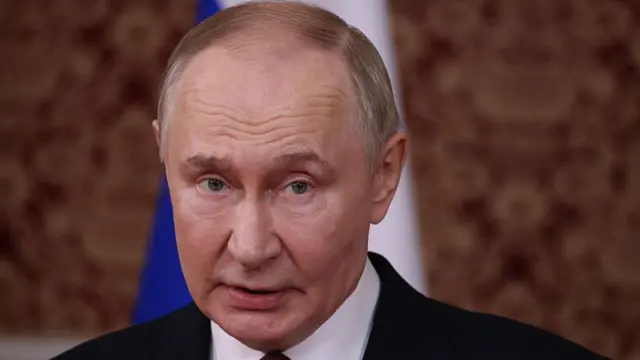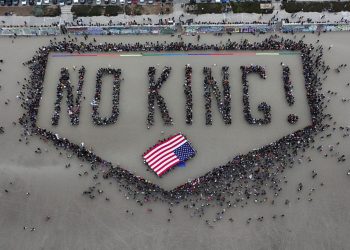Hungary still obliged to arrest people under ICC warrant, including Putinpublished at 2:32 p.m. BST
Anna Holligan
Report from The Hague
 Image source, Getty Images
Image source, Getty ImagesHungary’s withdrawal from the International Criminal Court (ICC) will come into force on June 2, 2026, a year after the government of Prime Minister Viktor Orbán officially notified its decision to the United Nations.
Under the court’s rules, Hungary remains bound by the Rome Statute until the withdrawal takes effect – meaning it would still be obliged to arrest people under ICC mandates, such as Russian President Vladimir Putin, if they entered its territory before June 2026.
- For context: The ICC issued an arrest warrant for Putin on allegations of war crimes in March 2023, focusing its allegations on the illegal expulsion of children from Ukraine since the start of the war. Russia has denied the allegations and called them “scandalous.”
Budapest accused the Hague court of being politically motivated. The decision makes Hungary the first EU member state to leave the ICC since its creation in 2002.
In a statement, the presidency of the Assembly of States Parties, which oversees the ICC, said it “regrets this turn of events,” adding that the decision “obscures our common quest for justice and weakens efforts to combat impunity.”
The ICC has faced repeated difficulties in enforcing such warrants. South Africa failed to arrest Sudanese Omar al-Bashir during a 2015 visit, despite an arrest warrant for war crimes and genocide.
Mongolia and Hungary also refused to arrest Israeli Prime Minister Benjamin Netanyahu during recent visits, leading ICC judges to formally conclude “non-cooperation.”
However, no further sanctions or penalties were imposed.
The court relies on member states to make arrests, as it does not have its own enforcement mechanism.
Human rights observers note that failure to act on ICC arrest warrants – often citing diplomatic immunity or domestic political concerns – undermines the court’s authority and emboldens others accused of serious international crimes.









